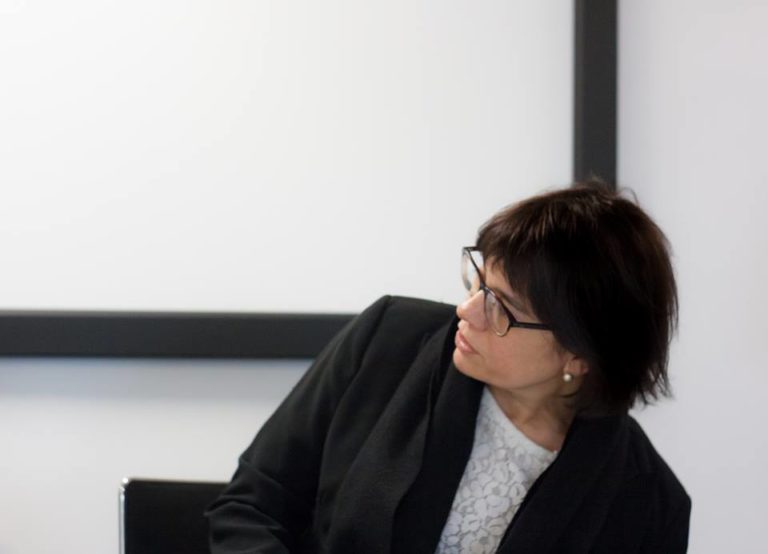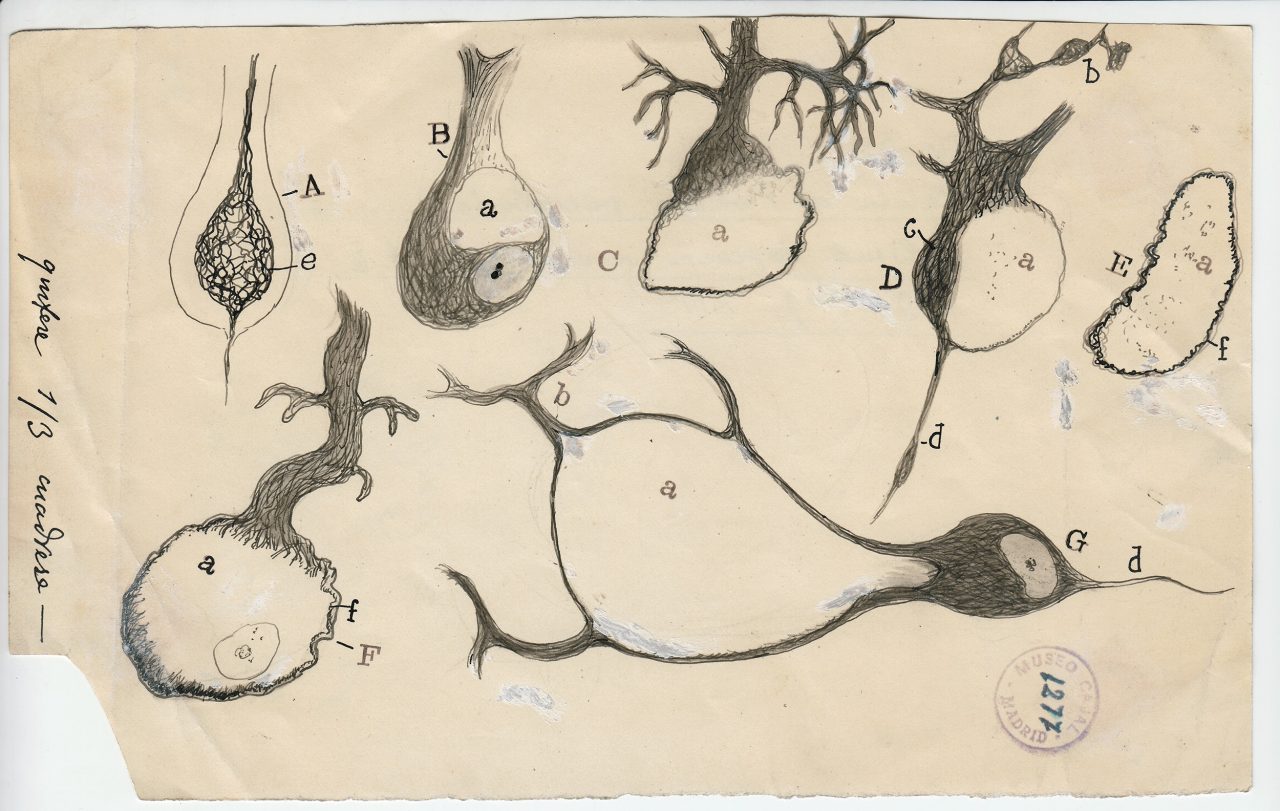23 Nov 2017, 6 pm
Liu Institute for Global Issues, 6476 NW Marine Drive, UBC
Lecture: Catherine Malabou
-
Catherine Malabou
PresenterCatherine Malabou is a professor of Philosophy at the Centre for Research in Modern European Philosophy at Kingston University and of European Languages and Literature and Comparative Literature at the University of California, Irvine. Malabou received her doctorate under the supervision of Jacques Derrida and Jean-Luc Marion from the École des hautes études en sciences sociales. Her dissertation became the book, The Future of Hegel: Plasticity, Temporality and Dilaectic (2005). She is the author of, most recently, Ontology of the Accident: An Essay on Destructive Plasticity (2012) and Before Tomorrow: Epigenesis and Rationality (2016). She is currently preparing the text of her Wellek lectures (2015), Metamorphoses of Intelligence (forthcoming).
Read More

The Belkin Art Gallery is thrilled to present a public lecture by Dr. Catherine Malabou, one of France’s leading philosophers whose work considers the concept of plasticity, which she derives in part from the work of Hegel as well as from medical science, for example, from work on stem cells and from the concept of neuroplasticity. Malabou’s contention that plasticity has become a major category in philosophy, arts, psychology, neurobiology and cell biology has opened up new perspectives on the way in which subjectivity and materiality, mind and body, are interrelated, along with new relationships between philosophy, arts and biology. Malabou will speak on Empty Square v. Evolutionary Memory: The New Adventures of Signs.
In the Introduction to the Work of Marcel Mauss, Levi-Strauss presents his theory of the floating signifier, according to which there must be something like an empty square in language in order for signification to function. This theory has opened the reign of the “symbolic” which, from Lacan up to philosophies of difference, has designed a strict border between the natural living beings and the speaking subject, thus excluding biology from the linguistic realm. As a consequence, the current philosophical determinations of life (“bare life” mainly) remain deprived of any empirical content. Contemporary biology is challenging these conceptions. Epigenetics and synthetic biology for example are bringing to light the existence of material crossings between the symbolic and the biological. Malabou will give some examples of these phenomena, insisting upon their importance for philosophy and art in particular.
Malabou’s visit coincides with the Belkin’s presentation of The Beautiful Brain: The Drawings of Santiago Ramón y Cajal, a unique collaboration between the Belkin, the Djavad Mowafaghian Centre for Brain Health and the VGH & UBC Hospital Foundation. The exhibition presents eighty drawings by Ramón y Cajal, the renowned Spanish pathologist, histologist and neuroscientist who received the Nobel Prize for his work in 1906. Malabou’s lecture aims to create a collaborative and generative platform to identify and address emerging issues at the creative intersection of neuroscience and art.
Catherine Malabou’s visit is part of the French Scholars Lecture Series made possible with the support of the Cultural Services of the Embassy of France in Canada in partnership with the UBC Peter Wall Institute for Advanced Studies, with additional support from the Audain Endowment for Curatorial Studies in the Department of Art History, Visual Art and Theory.
CONCEIVED AND DEVELOPED BY SHELLY ROSENBLUM
-
Catherine Malabou
PresenterCatherine Malabou is a professor of Philosophy at the Centre for Research in Modern European Philosophy at Kingston University and of European Languages and Literature and Comparative Literature at the University of California, Irvine. Malabou received her doctorate under the supervision of Jacques Derrida and Jean-Luc Marion from the École des hautes études en sciences sociales. Her dissertation became the book, The Future of Hegel: Plasticity, Temporality and Dilaectic (2005). She is the author of, most recently, Ontology of the Accident: An Essay on Destructive Plasticity (2012) and Before Tomorrow: Epigenesis and Rationality (2016). She is currently preparing the text of her Wellek lectures (2015), Metamorphoses of Intelligence (forthcoming).
Read More
Related
-
Event
11 Oct 2017, 7 pm
Conversations: Anthony Phillips and Timothy Taylor on Memory
Join Anthony Phillips and Timothy Taylor, two leading UBC scholars, in a conversation about memory. Phillips and Taylor will focus their presentations on the productive intersections of their own work and the current exhibition, The Beautiful Brain: The Drawings of Santiago Ramón y Cajal, a unique collaboration between the Belkin, the Djavad Mowafaghian Centre for Brain Health and the VGH & UBC Hospital Foundation.
[more] -
Event
1 Dec 2017, 2 pm
Concert at the Belkin: The Beautiful Brain
Once again, we are pleased to welcome the UBC Contemporary Players to the Belkin Art Gallery for a concert inspired by the exhibition The Beautiful Brain: The Drawings of Santiago Ramón y Cajal. Led by Directors Corey Hamm and Paolo Bortolussi, this graduate and undergraduate student ensemble from the UBC School of Music will animate the Gallery for an afternoon program celebrating themes from the exhibition.
[more] -
Exhibition
5 September 2017 – 3 December 2017
The Beautiful Brain: The Drawings of Santiago Ramón y Cajal

The Beautiful Brain is the first North American museum exhibition to present the extraordinary drawings of Santiago Ramón y Cajal (1852–1934), a Spanish pathologist, histologist and neuroscientist renowned for his discovery of neuron cells and their structure, for which he was awarded the Nobel Prize in Physiology and Medicine in 1906. Known as the father of modern neuroscience, Cajal was also an exceptional artist and studied as a teenager at the Academy of Arts in Huesca, Spain. He combined scientific and artistic skills to produce arresting drawings with extraordinary scientific and aesthetic qualities. A century after their completion, his drawings are still used in contemporary medical publications to illustrate important neuroscience principles, and continue to fascinate artists and visual art audiences. Eighty of Cajal’s drawings are accompanied by a selection of contemporary neuroscience visualizations by international scientists.
[more]